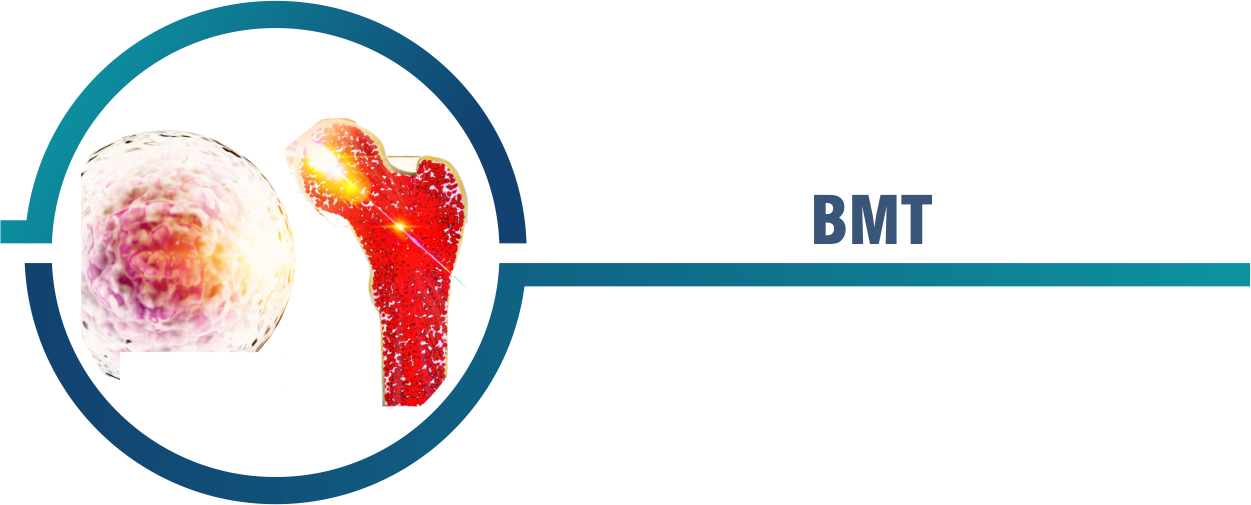
About Bone Marrow Transplant
A bone marrow transplant is a procedure that injects your body with healthy blood-forming stem cells to replace bone marrow that isn't producing enough healthy blood cells. A stem cell transplant is another name for a bone marrow transplant. If your bone marrow stops working and does not produce enough healthy blood cells, you may require a bone marrow transplant. If Cells from your own body is taken it is called Autologous transplant or if taken from a donor can it is called Allogenic transplant.
Autologous Transplant :
An autologous stem cell transplant replaces diseased or damaged bone marrow with healthy blood stem cells from your own body. Autologous stem cell transplantation is also known as autologous bone marrow transplantation.
Using cells from your own body during a stem cell transplant has some advantages over using donor stem cells. If you have an autologous stem cell transplant, for example, you won't have to worry about incompatibility between the donor's cells and your own cells.
If your body produces enough healthy bone marrow cells, an autologous stem cell transplant may be an option. These cells can be collected, frozen, and kept for future use.
Allogenic Transplant:
An allogeneic stem cell transplant replaces bone marrow that isn't producing enough healthy blood cells with healthy blood stem cells from a donor. Allogeneic stem cell transplantation is also known as allogeneic bone marrow transplantation.
A donor could be a family member, a friend, or someone you don't know. Blood stem cells that can be used in an Allogenic stem cell transplant include:
- Derived from the donor's blood
- Bone marrow was extracted from a donor's hipbone.
- Blood was drawn from a donated umbilical cord.
- You will receive high doses of chemotherapy or radiation prior to an Allogenic stem cell transplant to destroy your diseased cells and prepare your body for the donor cells.
Symptoms
The following are some of the most common reasons for a bone marrow transplant. Anyone suffering from one of these diseases should consult a bone marrow transplant expert to determine your eligibility for bone marrow transplantation.
- Immune Dysfunction.
- Congenital Neutropenia: An inherited infection-causing disease.
- POEMS syndrome is a rare blood disease that causes nerve damage and can affect many different parts of the body.
- Aplastic Anemia is a condition in which the embryo stops producing new blood cells.
- Neuroblastoma: A type of cancer caused by immature nerve cells in the body.
- An inherited blood disorder characterized by misshapen red blood cells.
- Adrenoleukodystrophy.
- Plasma Cell Disorder: A group of increasingly severe monoclonal gammopathies in which a clone or clones of premalignant or cancerous cells overproduce and secrete myeloma protein into the bloodstream.
- Thalassemia is an inherited blood disease in which the body produces an abnormal type of hemoglobin, which is also a component of red blood cells.
- Metabolic inborn errors.
- Cancers of the bone marrow, such as leukemia, multiple myeloma, and lymphoma.
Risk Factor
- Graft-versus-host disease (GVHD) can be a complication. In this, the donor cells transplanted through the bone marrow transplant procedure start to harm your body.
- You may contract infections pretty easily and serious infections can be difficult to treat.
- There may be clotting in your liver especially the smaller veins.
- You might get anemia.
- Graft failure can occur whereby cell production doesn’t start as it should.
- Your vital organs may start to bleed such as your brain and lungs.
- You may contract a cataract (cloudiness in your eyes).
- Nausea and vomiting.
- You might develop new cancers as a result of the transplant.
- You might have an early menopause.
- You might get mucositis where there is soreness in your throat, stomach, and mouth.
- Infertility is another complication that can arise from getting a bone marrow transplant.
Investigations
| Procedure | India | Turkey |
| (Price in USD) | (Price in USD) | |
| Pediatric Bone Marrow Transplant | 12000 | 60000 |
| Bone Marrow Transplant | 17500 | 65000 |
| Bone Marrow Cancer | 17000 | 50000 |
| Haplogenic Bone Marrow Transplant | 20000 | - |
| Autologous Bone Marrow Transplant | 22000-25000 | 20000 |
| Thalassemia Treatment | 30000-32000 | 60000 |
| Allogeneic Bone Marrow Transplant | 35000-40000 | 65000 |
| Aplastic Anemia | 25000-27000 | 65000 |
| Leukemia Treatment | 28000 | 30000 |
| Hairy Cell Leukemia - HCL | 1300 | - |
| Acute Lymphocytic Leukemia - ALL in Adults | 25000 | 54000 |
Note : This is an approximate cost and may vary depending on various condition of the patient health after physical evaluation.
Treatment Options
Side Effects
Benefits
Success Rate
The success rate of BMT varies depending on the type of cancer, ranging from 20% in severe cases to 80% in non-malignant cancers.
When the blood count, which includes red blood cells, white blood cells, and platelets, returns to normal levels, it indicates that the Bone Marrow Transplant was successful.
